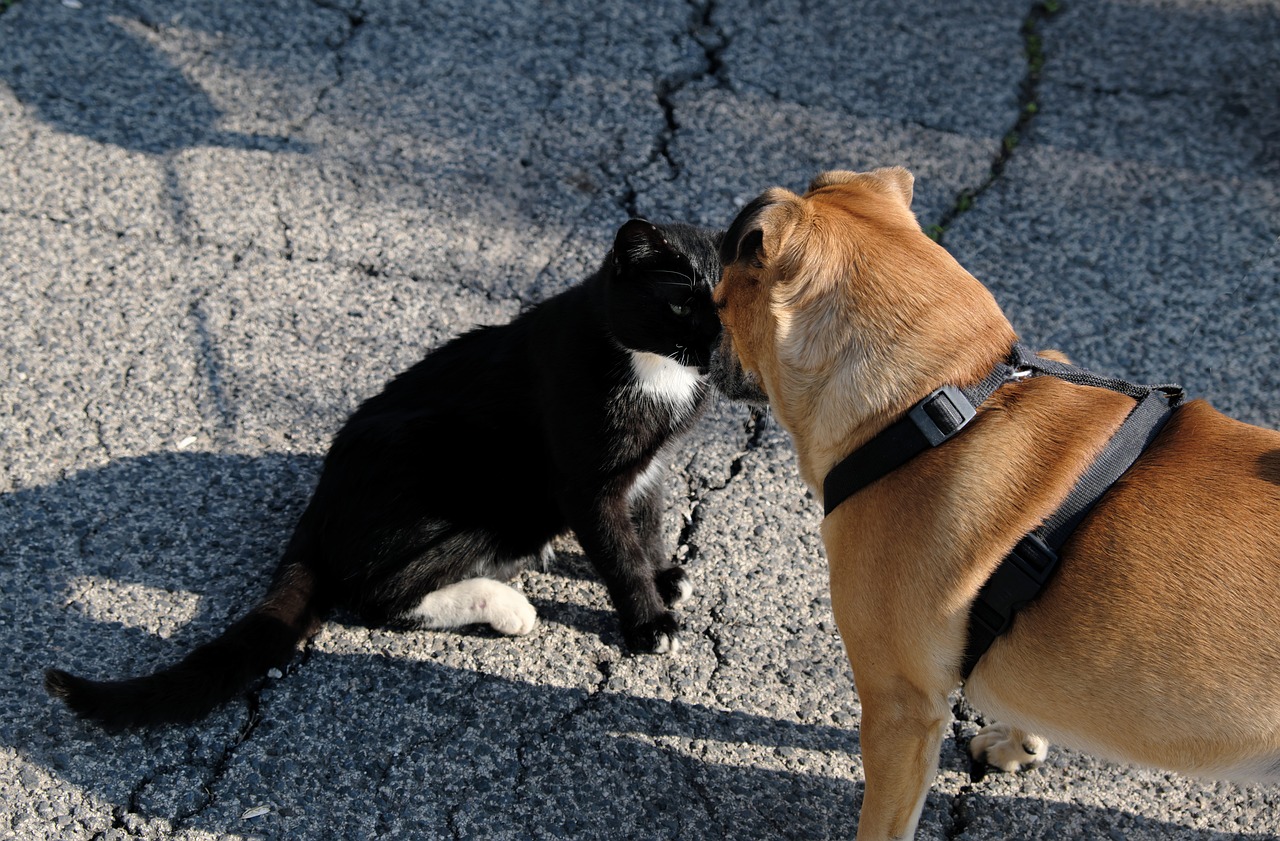Dental care for dogs and cats

In the hustle and bustle of our modern lifestyles, it’s easy to overlook the seemingly insignificant aspects of pet care. But your pets’ oral health is just as important as your own. And who would want to neglect their loyal friend or feline companion? This article aims to guide you through the essentials of dental care for dogs and cats. We’ll discuss why it’s important, common oral health issues, and practical tips you can apply to ensure your pet maintains a healthy smile.
Why is Dental Care Important for Pets?
Many pet owners are under the assumption that their pets do not require dental care. But just like humans, our furry companions can suffer from gum disease, tooth loss, and other dental-related issues. Oral health is an integral part of your pet’s overall wellbeing, and neglect can result in serious medical conditions.
Cela peut vous intéresser : How to Choose and Care for a Micro Pig as a Pet?
Poor dental health can lead to discomfort, pain, and difficulty in eating. If left unchecked, bacteria from the mouth can enter the bloodstream and affect the heart, kidneys, and liver. Regular dental care can prevent these problems and provide your pet with a better quality of life.
Common Oral Health Issues in Dogs and Cats
Understanding the common dental issues that dogs and cats might face is the first step towards prevention. Here, we will introduce some of these conditions, so you can better grasp the importance of pet dental care.
Dans le meme genre : How to Properly Care for a Pet Tarantula During Molting?
Periodontal Disease: This is the most common dental problem in pets. It is the inflammation and infection of the tissues surrounding the tooth and can lead to tooth loss if not treated.
Gingivitis: This is the inflammation of the gums caused by plaque buildup. If your pet’s gums are red, swollen, or bleed easily, they may have gingivitis.
Tooth Decay and Loss: Just like humans, dogs and cats can suffer from tooth decay and loss. Bad breath, difficulty in eating, and changes in behaviour are some signs of this problem.
Prevention and At-Home Care
The saying "prevention is better than cure" rings true when it comes to pet dental care. Here are some practical steps you can take to maintain your pet’s oral health.
Brushing Their Teeth: Regular brushing of your pet’s teeth is the most effective way to prevent dental problems. Use a pet-friendly toothpaste and toothbrush. Start slow and gradually increase the brushing duration.
Dental Toys, Treats, and Food: There are specially designed toys, treats, and food that help reduce plaque and tartar buildup. They can be a supplemental part of your pet’s dental care routine, but should not replace brushing.
Regular Vet Check-ups: Professional dental cleanings are necessary to keep your pet’s mouth healthy. Your vet can identify early signs of dental disease and provide appropriate treatment.
Recognizing Signs of Dental Problems
Being able to spot signs of dental problems early on can help prevent further complications. Look out for these indicators:
Bad Breath: While it’s normal for pets to have slightly bad breath, an unusually foul odor can indicate a problem.
Changes in Eating Habits: If your pet is having difficulty eating or has lost appetite, it may be suffering from dental pain.
Excessive Drooling: While some pets naturally drool more than others, excessive drooling, especially when accompanied by blood, is a cause for concern.
How to Approach a Vet for Your Pet’s Dental Health
A vet can provide professional advice and medical care for your pet’s dental health. Here’s how to approach a vet visit:
Be Prepared: Before the visit, take note of any changes in your pet’s behaviour or eating habits. This will help the vet diagnose any potential problems.
Ask Questions: Don’t hesitate to ask your vet questions about your pet’s dental health. They can provide valuable advice tailored to your pet’s specific needs.
Follow Recommended Treatments: If your vet recommends a dental treatment, it’s crucial to follow through for the wellbeing of your pet.
Taking care of your pets involves more than just feeding them and giving them love and attention. It also includes seeing to their dental health needs. With regular dental care, you can ensure your pets live a happy, healthy life. Remember, prevention is key. Start your pet’s dental care routine today and you’ll thank yourself later.
The Importance of Regular Vet Dental Cleanings
Regularly scheduled professional dental cleanings are a crucial part of your pet’s oral health regimen. These should ideally be performed by a vet at least once a year. During these cleanings, the vet will remove any plaque or tartar buildup, which if left unchecked, can lead to severe dental diseases such as periodontal disease. While at-home brushing and dental toys can help maintain oral hygiene, they cannot replace the comprehensive cleaning provided by a vet.
Anesthesia-Free Dentistry: Some pet owners might have come across the concept of anesthesia-free dentistry for pets. While it might seem attractive due to its non-invasive nature, it is not recommended by experts. Without anesthesia, a vet cannot perform a thorough cleaning, and it can also cause unnecessary stress to your pet.
Cost of Dental Cleanings: Many pet owners avoid regular dental cleanings due to the perceived high cost. However, the cost of treating dental diseases can be much higher. Think of regular cleanings as an investment in your pet’s overall health and wellbeing.
Conclusion: The Role of Pet Owners in Maintaining Pet Dental Health
As a pet owner, you play a vital role in your pet’s dental health. Consistent at-home dental care, along with regular vet check-ups, can ensure the health and happiness of your pet.
Understanding Your Pet’s Needs: Every pet is unique, and their dental care requirements can vary. Regularly observe your pet for any changes in behavior or eating habits. This can help you catch any dental problems early.
Educating Yourself: Stay informed about pet dental care. The more you know, the better you can care for your pet. Understanding the risks and knowing the signs of dental issues can make a significant difference in your pet’s life.
Commitment to Care: Caring for your pet’s teeth requires a commitment. It might seem daunting at first, but with time, it becomes part of your routine. Remember, the effort you put in now can prevent potential health issues in the future.
In conclusion, your pets rely on you for their care. Their oral health is just as important as any other aspect of their wellbeing. By being proactive in their dental care, you can ensure they live a long, healthy, and happy life. Start today and make dental care a regular part of your pet’s health regimen. Your furry friend will thank you for it.
